Clinical note
- Page Path
-
- HOME
- ARTICLE CATEGORY
- Clinical note
- Clinical Note
- Neurology
- Expanding association between BICD2 variants and brain malformations and associated lissencephaly
- Jaeso Cho, Haeryung Kim, Seoungbok Lee, Jihoon G Yoon, HyeJin Kim, Minhye Kim, Seoyun Jang, Woojoong Kim, Soo Yeon Kim, Jong Hee Chae
- Clin Exp Pediatr. 2024;67(1):54-56. Published online December 21, 2023
-
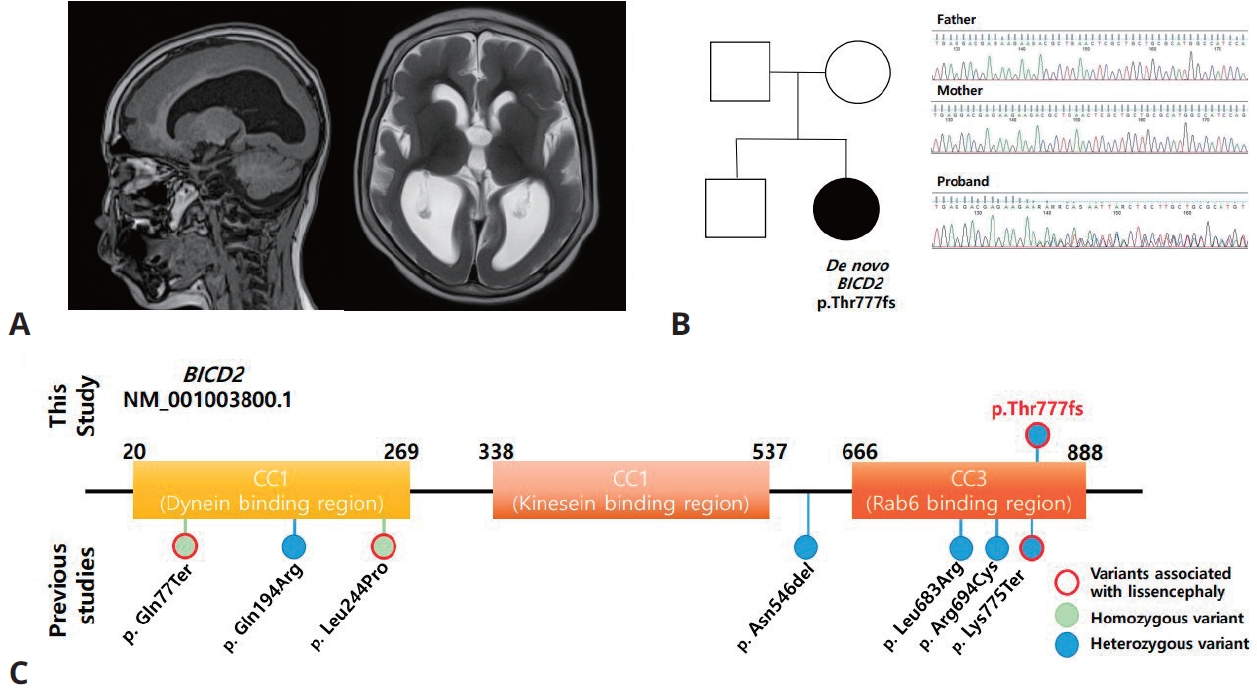
- Other
- Novel PTRH2 gene variant causing IMNEPD (infantile-onset multisystem neurologic, endocrine, and pancreatic disease) in 2 Saudi siblings
- Dalal K. Bubshait
- Clin Exp Pediatr. 2023;66(5):223-225. Published online March 23, 2023
-

- Genetics and Metabolism
- Biallelic POLR3A variants cause Wiedemann-Rautenstrauch syndrome with atypical brain involvement
- Byungseung Moon, Minhye Kim, Hye Jin Kim, Jae So Cho, Hey Joon Son, Byung Chan Lim, Ki Joong Kim, Jong Hee Chae, Soo Yeon Kim
- Clin Exp Pediatr. 2023;66(3):142-144. Published online December 30, 2022
-
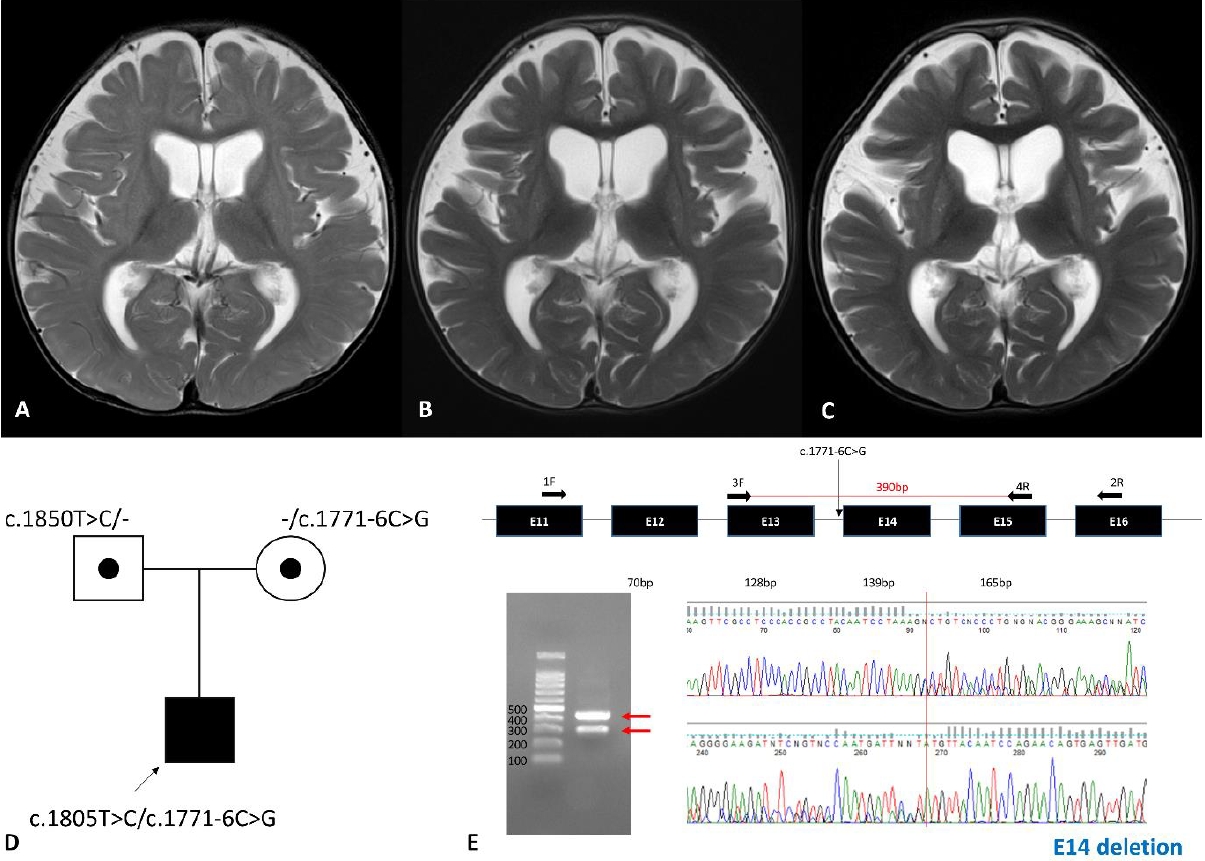
- Rheumatology
- Haploinsufficiency A20 misdiagnosed as PFAPA (periodic fever, aphthous stomatitis, pharyngitis, and cervical adenitis) syndrome with Kikuchi disease
- Kyo Jin Jo, Su Eun Park, Chong Kun Cheon, Seung Hwan Oh, Seong Heon Kim
- Clin Exp Pediatr. 2023;66(2):82-84. Published online June 22, 2022
-

- Endocrinology
- Graves’ disease: an uncommon cause of late sequelae following DRESS (drug reaction with eosinophilia and systemic symptoms)
- Therdpong Tempark, Amatanun Tangthanapalakul, Tawatchai Deekajorndech, Susheera Chatproedprai, Vichit Supornsilchai, Siriwan Wananukul
- Clin Exp Pediatr. 2022;65(12):602-604. Published online June 22, 2022
-
- Clinical note
- General Pediatrics
- Diabetic ketoacidosis in children induced by coronavirus disease 2019 (COVID-19) diabetic ketoacidosis post-COVID-19 in children
- Neha Thakur, Narendra Rai
- Clin Exp Pediatr. 2022;65(4):209-210. Published online November 30, 2021
-
- Clinical Note
- Infection
- A neonate infected with coronavirus disease 2019 with severe symptoms suggestive of multisystem inflammatory syndrome in childhood
- Fatemeh Eghbalian, Ghazal Sami, Saeid Bashirian, Ensiyeh Jenabi
- Clin Exp Pediatr. 2021;64(11):596-598. Published online September 10, 2021
-
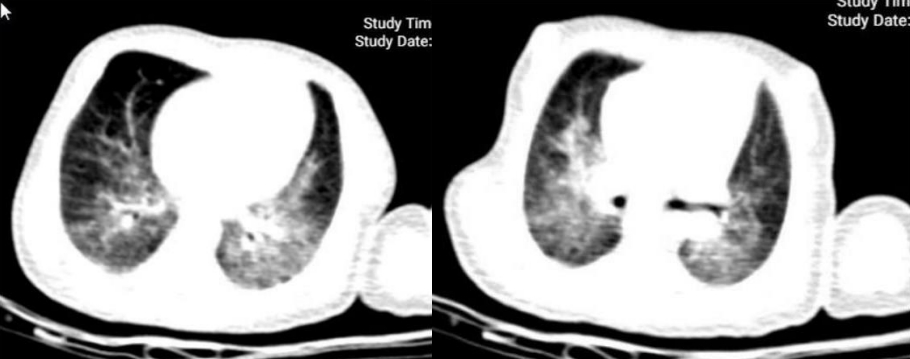
Question: Can multisystem inflammatory syndrome in childhood (MIS-C) occur in the neonate associated with coronavirus disease 2019 (COVID-19)?
Finding: A 9-day-old neonate infected with COVID-19 had fever, respiratory distress, and gastrointestinal symptoms suggestive of MIS-C. This neonate recovered after treatment with intravenous immunoglobulin (IVIG).
Meaning: IVIG successfully treated a rare case of a 9-day-old neonate with COVID-19 and severe symptoms suggestive of MIS-C.
- Clinical note
- Nephrology (Genitourinary)
- Extracorporeal membrane oxygenation with systemic heparinization as a rescue therapy for acute life-threatening pulmonary thromboembolism complicating nephrotic syndrome
- Kyusang You, So Mi Kim, Dongmin Kim, Kyoungmin Ryu, Mee Jeong Lee
- Clin Exp Pediatr. 2021;64(8):430-432. Published online November 16, 2020
-
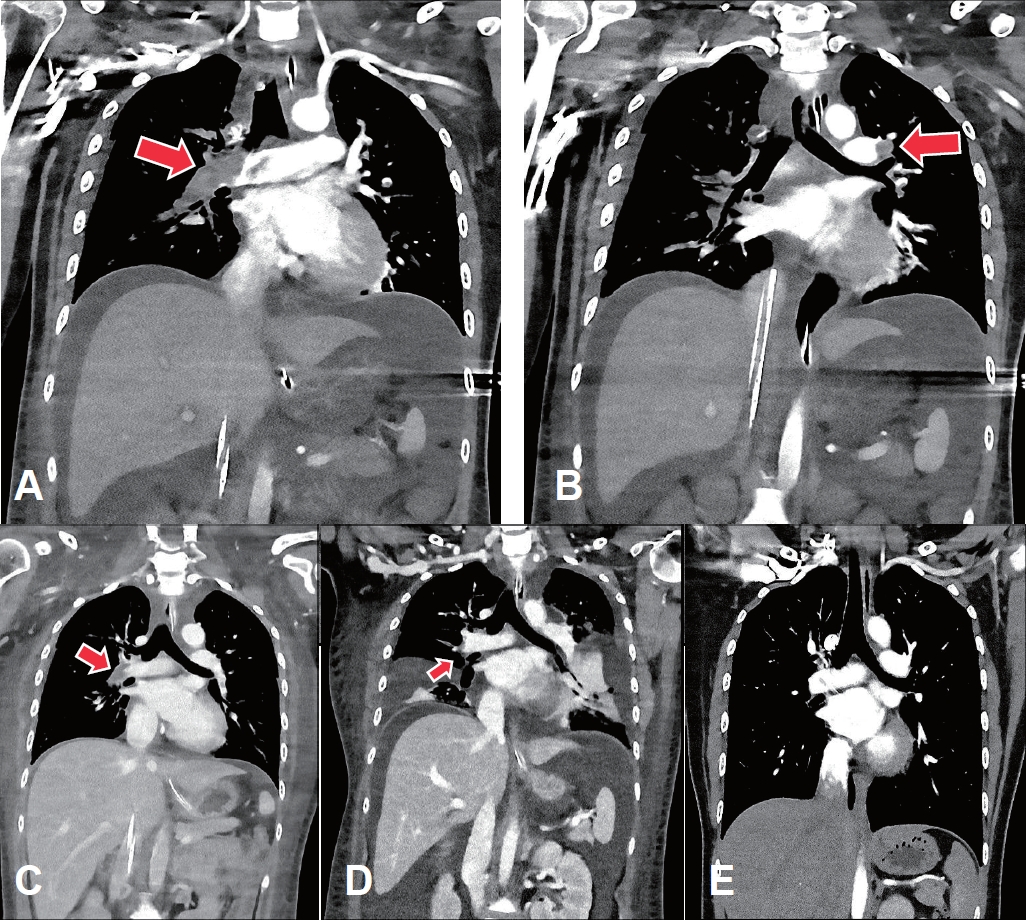
Question: How would you treat acute life-threatening pulmonary thromboembolism occurring in nephrotic patients?
Finding: A 16-year-old woman with minimal change-associated nephrotic syndrome presented with cardiac arrest caused by an acute bilateral pulmonary thromboembolism. Her hemodynamics stabilized with resolution of thrombi while on venoarterial extracorporeal membrane oxygenation (ECMO) and systemic heparinization.
Meaning: In selected cases, ECMO with systemic heparinization may rescue patients from acute life-threatening pulmonary thromboembolism even without reperfusion therapy.
- Neurology
- Myelin oligodendrocyte glycoprotein antibody encephalitis following severe acute respiratory syndrome coronavirus 2 in a pediatric patient
- Nusrat Ahsan, Saba Jafarpour, Jonathan D. Santoro
- Clin Exp Pediatr. 2021;64(6):310-312. Published online February 1, 2021
-
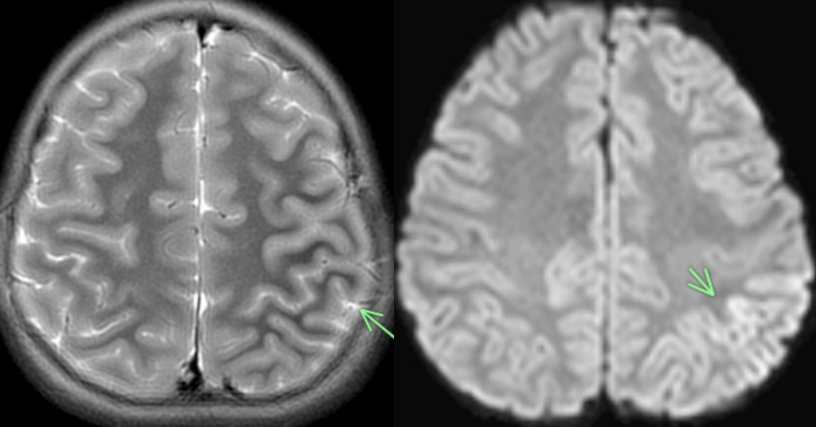
Question: Although neurologic complications have been reported during the acute phase of infection in children, less is known about the postinfectious phenomenon associated with the severe acute respiratory syndrome coronavirus 2 (SARSCoV-2) virus.
Finding: We present a case of a 7-year-old female with a prior asymptomatic infection with SARS-CoV-2 who subsequently developed encephalopathy and status epilepticus in association with myelin oligodendrocyte glycoprotein (MOG) antibody positivity.
Meaning: Here we present the first case of postinfectious of a MOG spectrum disorder associated with prior SARS-CoV-2 infection in a pediatric patient.
- Infection
- Coronavirus disease 2019 in a 13-year-old patient with acute lymphoblastic leukemia
- Seyed Kamal Eshagh Hossaini, Zahra Movahedi, Ahmad Hormati, Hosein Heydari, Seyed Jalal Eshagh Hosseini, Fatemeh Khodadust, Mahboubeh Afifian, Sajjad Ahmadpour
- Clin Exp Pediatr. 2021;64(5):247-250. Published online March 8, 2021
-
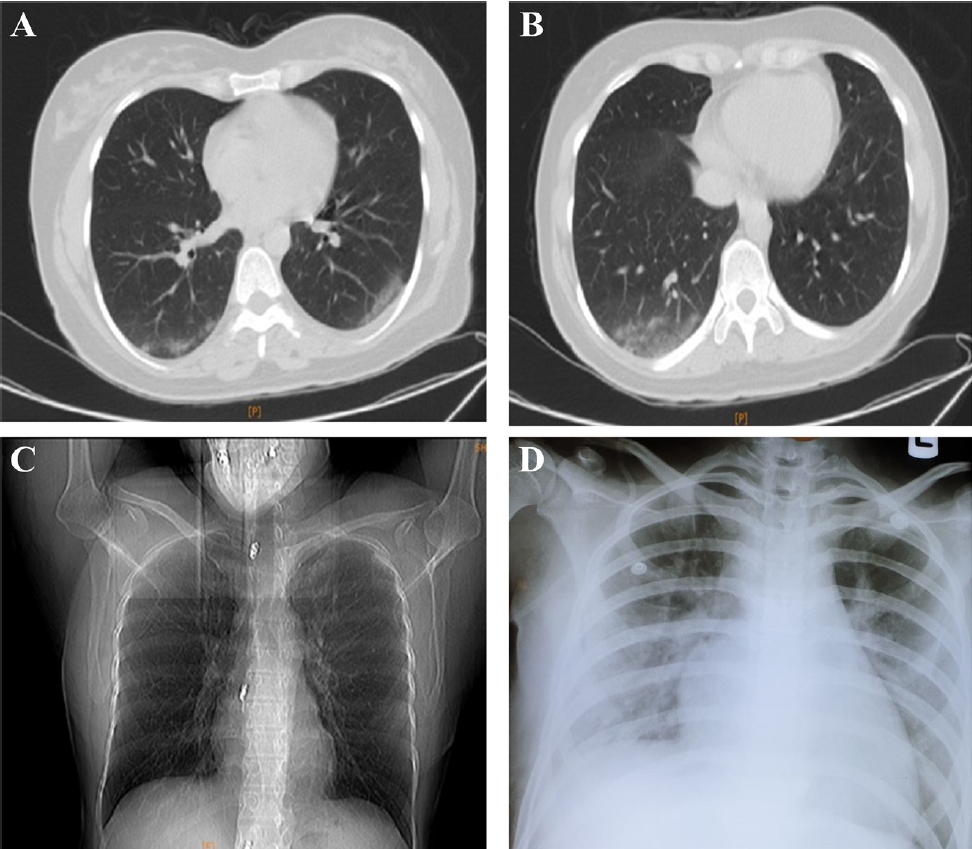
Question: What should be considered in an immunocompromised child with coronavirus disease 2019 (COVID-19)?
Finding: Due to the importance of appropriately managing COVID-19 in children with cancer, the possibility of a fatal outcome should be considered in immunocompromised patients who receive chemotherapy agents.
Meaning: In all kinds of infections including COVID-19, disuse management and the development of international guidelines for children with cancer is challenging but important.
- Clinical Note
- Neonatology (Perinatology)
- Secondary renal tubular dysgenesis in a newborn exposed to angiotensin Ⅱ receptor antagonist during gestation
- Mi Hyeon Gang, Yong Wook Lee, Mea-young Chang
- Clin Exp Pediatr. 2021;64(3):136-138. Published online July 21, 2020
-
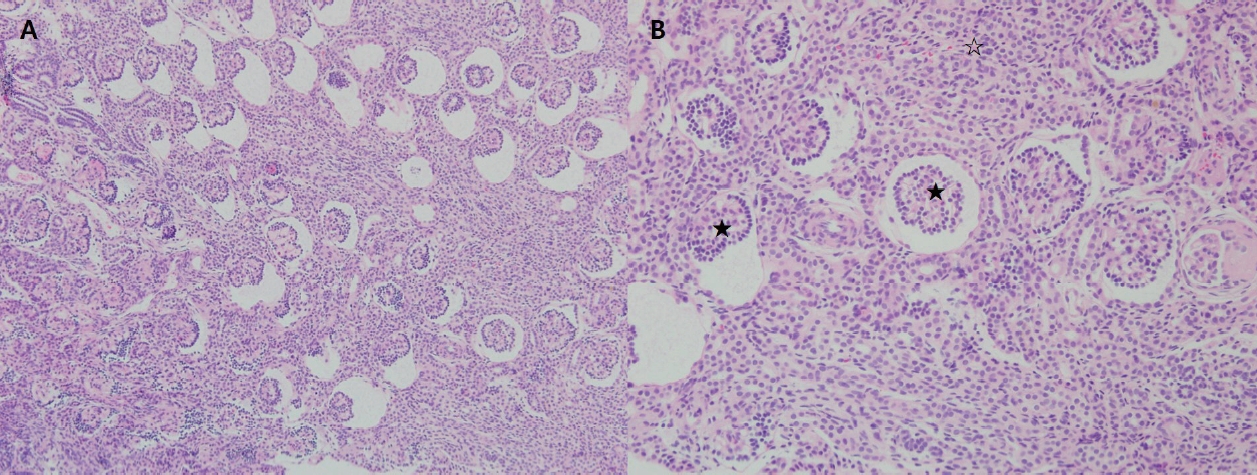
Question: The use of renin-angiotensin system (RAS) blockers during pregnancy causes lethal neonatal complications.
Finding: A neonate, whose mother took a RAS blocker during pregnancy, was diagnosed with renal tubular dysgenesis. He presented with respiratory failure, severe refractory hypotension, and anuria requiring continuous dialysis.
Meaning: Physicians should consider any degree of RAS fetopathy in a newborn born to a hypertensive mother who had use of RAS blockers during her pregnancy.
- Clinical note
- Immunology
- Salivary and lacrimal gland enlargement with serum immunoglobulin G4 elevation
- Jinseok Lee, Da-Eun Kim, Jeong-Hwan Yang, Misun Lim, Hye Yung Yum, JoongGon Kim
- Clin Exp Pediatr. 2021;64(2):93-95. Published online December 8, 2020
-
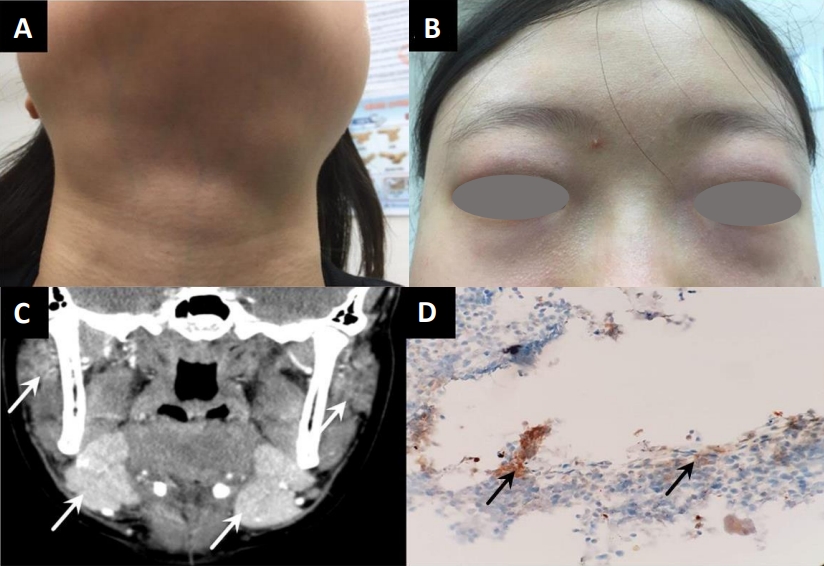
Question: What diseases should be considered in a 15-year-old girl presenting enlarged lacrimal and salivary glands?
Finding: Laboratory tests revealed elevated IgG4 levels. A submandibular gland biopsy showed lymphoplasmacytic infiltration and more than 40 immunoglobulin G4 (IgG4)-positive cells per high-power field. The patient was diagnosed with IgG4-related disease.
Meaning: Although rare in children, IgG4-related disease should be considered a differential diagnosis in children with enlarged salivary and lacrimal glands.
- Infection
- Coronavirus disease 2019 in a 2-month-old male infant: a case report from Iran
- Hosein Heydari, Seyed Kamal Eshagh Hossaini, Ahmad Hormati, Mahboubeh Afifian, Sajjad Ahmadpour
- Clin Exp Pediatr. 2020;63(12):499-502. Published online September 21, 2020
-
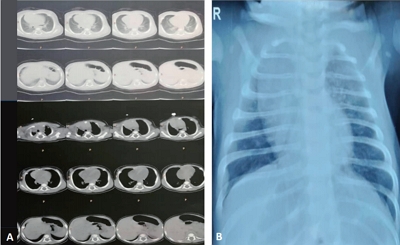
-
DOI: https://doi.org/10.3345/cep.2020.00941 Retraction in: Clin Exp Pediatr 2022;65(8):417
- Clinical Note
- Allergy
- Recurrent urticaria caused by specific cat serum albumin IgE cross-reacting with pork serum albumin
- Cheon Kim, Sung Won Kim, Yoon Ha Hwang
- Clin Exp Pediatr. 2020;63(11):451-453. Published online April 6, 2020
-
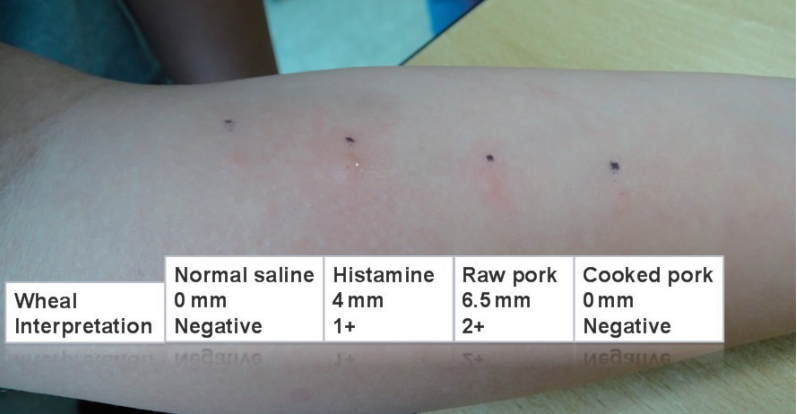
Question: What should be considered in children who complain of pork allergies?
Finding: History of raising a cat, the onset of symptoms after the ingestion of pork and specific IgE tests to pork, cat, milk, and Alpha-gal are needed.
Meaning: Pork cat syndrome could be the cause of pork allergies.
- Nephrology (Genitourinary)
- First episode of nephrotic syndrome with acute abdominal pain
- Samridhi Goyal, Rachita Singh Dhull, Bobbity Deepthi, Abhijeet Saha
- Clin Exp Pediatr. 2020;63(10):411-414. Published online July 21, 2020
-
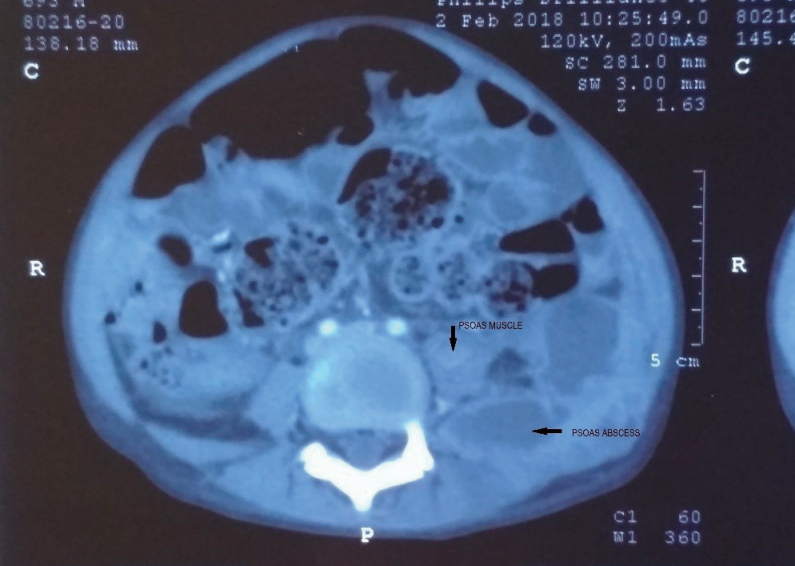
Question: What are the likely causes of pain abdomen in Nephrotic syndrome?
Finding: Severe hypovolemia leading to mesenteric ischemia, spontaneous bacterial peritonitis, gastroenteritis, adverse effect of corticosteroids leading to gastritis, mesenteric ischemia due to thromboembolism, acute appendicitis, intussusception due to severe gut wall oedema and rarely Psoas abscess.
Meaning: Clinical suspicion and careful investigation is warranted to diagnose rare cause of pain abdomen like Psoas abscess.
- Neonatology (Perinatology)
- Management of the first newborn delivered by a mother with COVID-19 in South Korea
- Eun-Kyung Lee, Won Duck Kim, Dong won Lee, Sang-Ah Lee
- Clin Exp Pediatr. 2020;63(9):373-375. Published online July 13, 2020
-
Question: How to manage the newborn born to the coronavirus disease 2019 (COVID-19) pregnant?
Finding: Medical staff managed the delivery and neonatal care of a COVID-19 pregnant patient was based on the “Guidelines for COVID-19 response.”
Meaning: We desire that our management will help treat for subsequent patients and there should be updated continuously the prevention and control consensus strategies for newborn COVID-19.
- Allergy
- Complement 4 levels of a 4-year-old girl with angioedema
- Soyoung Shin, Yoon Tae Lee, Kyung Yil Lee, Joonhong Park, Jae Ho Lee, Eun Ae Yang
- Clin Exp Pediatr. 2020;63(1):30-31. Published online November 8, 2019
-

- Clinical note
- Neonatology (Perinatology)
- Gray-brown skin discoloration following phototherapy for hyperbilirubinemia due to anti-E alloimmunization
- Da Jeong Lee, Woo Sun Song, Seung Yeon Kim
- Clin Exp Pediatr. 2019;62(11):428-430. Published online September 18, 2019
-

-

-
-

-

-
Impact Factor4.2
-
6.52022CiteScore92nd percentilePowered by







